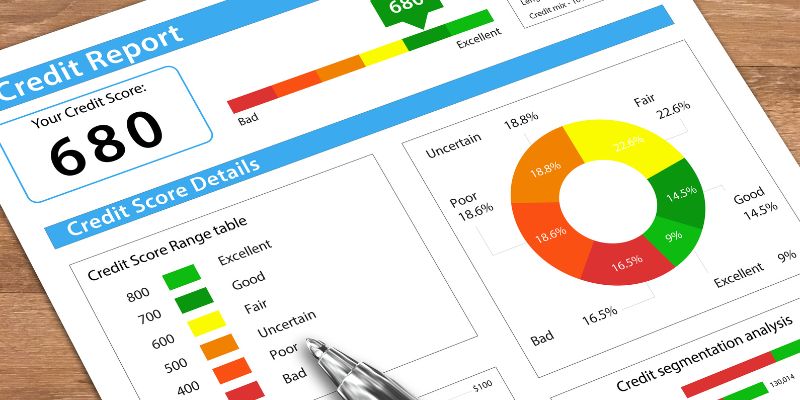Using A Tax Break For Your Second Mortgage Payments
The government is aware that, for many Americans, a mortgage represents the single most significant financial commitment they will ever make. The Interest you pay on your mortgage is tax deductible because of a provision made by the Internal Revenue Service.
We'll investigate the financial ramifications of a second mortgage in detail, illuminating the steps necessary to calculate your tax deduction and pointing out the limitations and hazards you should be aware of.
What Is The Deductible For Mortgage Interest?

With the help of the mortgage interest deduction rule, homeowners can reduce their yearly taxable income by the amount of Interest they pay on their mortgage. The borrower deducts the mortgage interest paid on loans used to purchase, construct, or substantially renovate a principal dwelling. If you're married and filing jointly, the maximum amount of Interest you may deduct from your taxes will be determined by when you took out your loan.
Tax Deductions For A Second Home: The Essentials
it's essential to grasp the IRS's definitions of "mortgage interest" and "mortgage debt" and what they mean in the context of a "qualified house." A "qualifying home" might be your primary residence or a secondary property that you use sometimes.
According to IRS Publication 936, "any dwelling that provides sleeping, cooking, and bathroom facilities" is considered a qualified primary residence. This includes mobile homes, house trailers, flats, and boats.
If you own three or more homes in a given year, you can only use two as your primary and secondary residences. During the remainder of the year, you can designate a different house as your primary or secondary residence if you sell one of the properties you were previously using.
Can You Deduct All of Your Mortgage Interest?

The determining factors are what sort of debt you have and how much more you wish to take on. When filing as a married couple, you may only deduct Interest on $1 million or less in house acquisition debt and $100,000 or less in home equity debt.
If you're filing as a single person or a married couple with separate incomes, you may borrow up to $500,000 for a home purchase and up to $50,000 for home equity. With a mortgage calculator, you can see how varying interest rates may affect your monthly payment.
If you borrow $1,000,000 on one or more mortgages to buy, construct, or upgrade your primary or secondary residences, you can deduct the whole amount of Interest you've paid. If you had two mortgages totaling $1 million at an interest rate of 4% each, you might deduct $40,000 in Interest per year.
Tax Deduction Applications for a Second Mortgage
If you have paid at least $600 in mortgage interest throughout the year, your mortgage lender or holder will send you a tax form (Form 1098) a few months before the end of the year so that you may include it with your tax return.
Your paid mortgage insurance premiums and deductible points will be included on your Mortgage Interest Statement alongside the total amount of your yearly payments. If you have this information, you may use it to complete Schedule A of Form 1040.
You may borrow up to $1.1 million against your property, using a combination of home purchase and equity debt. If you have obligations over this amount and use the money toward an investment or a business, the Interest you pay on those loans may be tax deductible.
Modifications, Premiums, and Points
Debt for the purchase of a property, including that incurred through refinancing, can be included in the amount of debt for which you are eligible to get a tax deduction. Beyond that amount, you'll be considered to have home equity debt.
In addition, you can amortize the cost of points paid on a new mortgage. Assuming you refinanced your mortgage for 30 years, you may write off some of the issues you paid yearly. Topics still need to be deducted can be written off in full in the year of the home's sale or refinancing.
This deduction will be reported on line 12 of Schedule A of Form 1040. A mortgage insurance premium can be deducted in whole or part if your adjusted gross income is less than $109,000. This is a type of loan used to purchase a property.
The Bottom Line
The tax regulations might be confusing, but if you play your cards well, you could save thousands of dollars annually. Before getting a second mortgage, you should talk to a tax expert.

By Rick Novak : Nov 29, 2024
7 Proven Strategies for Maintaining A Good Credit Rating
Secure your financial future by keeping a healthy credit score. Read our 7 strategies and start today
Read More
14760

By Rick Novak : Sep 05, 2024
Unveiling the Mystery: What Exactly Is a Manufactured Home?
Curious about manufactured homes? Learn what they are, how they differ from traditional housing, and why they're becoming a popular choice for many.
Read More
12623

By Rick Novak : Oct 26, 2024
How to Tackle Your Student Loans Without Stress: An Ultimate Guide
Do you want to discover effective strategies for managing your student loans? Give this article a read to learn how to plan your repayments, explore refinancing options, and avoid default.
Read More
17263

By Kelly Walker : Dec 17, 2024
Price vs. Stock Value: What's the Difference?
The price of the stock is what you actually pay for it. However, value is an intrinsic feature of an asset.
Read More
7110

By Rick Novak : Aug 02, 2024
How to Build the Best Lazy Portfolio: A Beginner's Guide
Learn how to create a lazy portfolio with our beginner-friendly guide. Find out about asset allocation, fund selection, and tips for long-term success.
Read More
14529

By Rick Novak : Aug 14, 2024
The Pros and Cons of Holding a Day Trading Position Overnight
Should you hold a day trading position overnight? Explore the risks and potential rewards of overnight trading in this informative article.
Read More
517

By John Davis : May 18, 2025
What Are The Key Differences Between Exchange-Traded Funds (ETFs) And Index Funds?
Exchange-traded funds (ETFs) and index funds allow investors to purchase a diversified portfolio of securities. While index funds are mutual funds meant to passively track a specific market index, exchange-traded funds (ETFs) are traded like individual stocks. They can be managed either passively or aggressively. ETFs typically have lower entry thresholds than index funds, and ETFs change more frequently.
Read More
12431

By Kelly Walker : Nov 19, 2024
Is a Personal Loan Right for You? Top Reasons to Consider
Explore why taking out a personal loan could be a smart move for your finances and future. Learn about the benefits and scenarios where a personal loan could be your best option.
Read More
11891

By Rick Novak : Sep 30, 2024
How Bonds Affect the Stock Market: Everything You Need to Know
This article provides a detailed overview of how bonds affect the stock market and their mutual relationship
Read More
268

By Rick Novak : Dec 19, 2024
Planning for Retirement: How Much Money is Enough
How Much Money You Need for Retirement: Tips for Calculating Your Savings Goal and Ensuring Financial Security in Your Golden Years
Read More
15195

By Kelly Walker : Aug 13, 2024
What Is Faith-Based Investing?
Learn faith-based investing, the types of investments available, and how to ensure your portfolios align with your moral beliefs and religious convictions. Get a comprehensive guide to get started on ethical investing today!
Read More
16492

By Rick Novak : Oct 10, 2024
Explaining Trailing Stop Loss in Day Trading
How a trailing stop loss can help you in day trading. Learn how it protects your profits and reduces losses in fast-moving markets.
Read More
9482